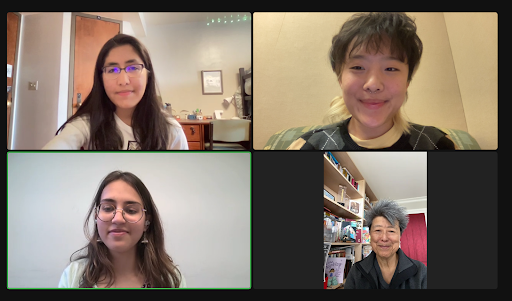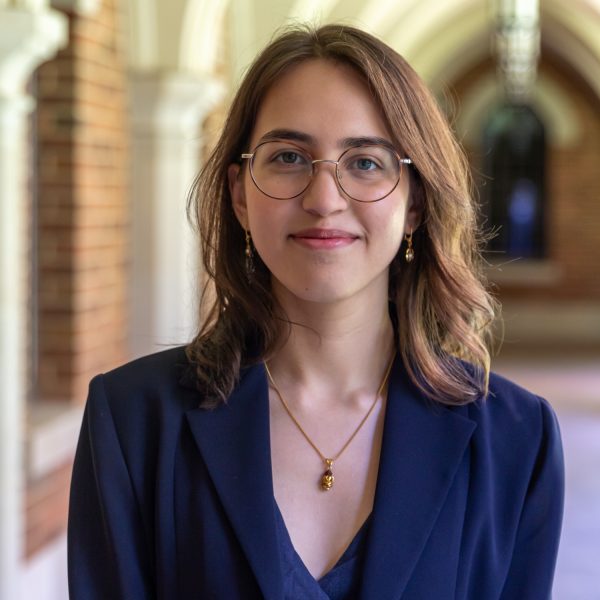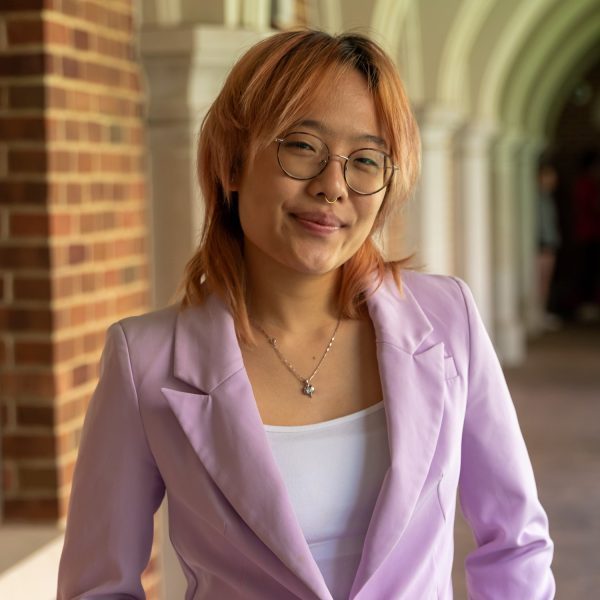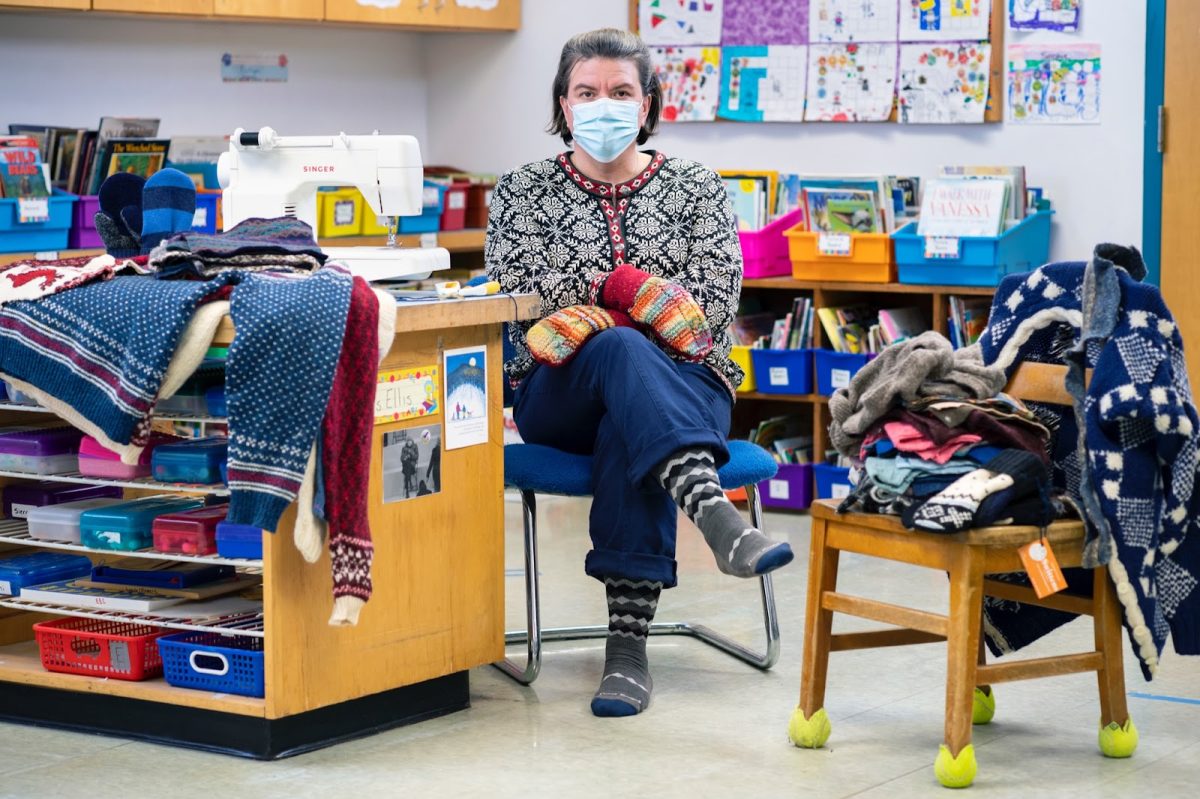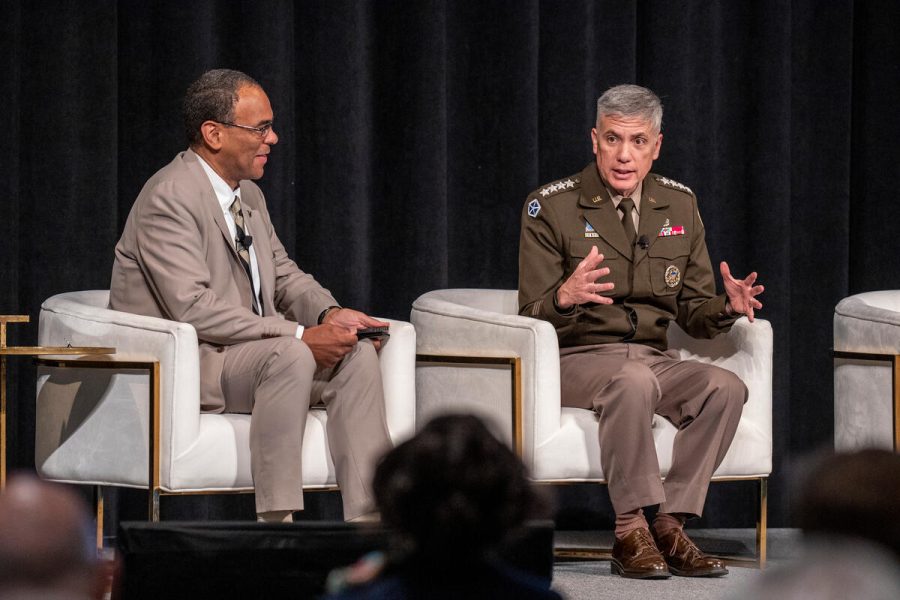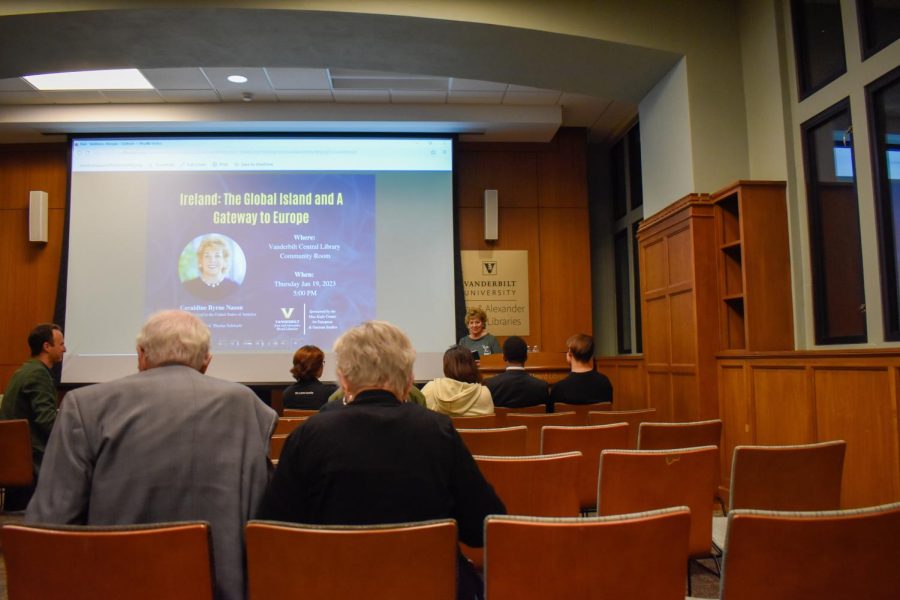On March 27, The Hustler spoke to Chinese American journalist and activist Helen Zia. She played an instrumental role in seeking justice for Vincent Chin, a Chinese American auto worker who was killed while working in Detroit, Michigan, in 1982. She co-founded American Citizens for Justice (ACJ), a nonprofit that advocates for immigrants and victims of discrimination and served as the executive editor of Ms. Magazine. She was an expert witness in the LGBTQ+ rights Supreme Court case Hollingsworth v. Perry (2013). Her latest book, “Last Boat Out of Shanghai,” was published in 2020.
Zia visited Vanderbilt on March 24 for a roundtable and the “From Vincent Chin to #StopAAPIHate: Helen Zia on 40+ Years of Asian American Activism” panel discussion, an event hosted by Asian American Pacific Islander (AAPI) Employee Affinity Group (EAG) and the Asian American Advocacy Project (TAAAP).
The Hustler: How did your experiences as a college campus organizer inform your future activism? What similarities and differences do you see between your own advocacy during college and the student organizing done at Vanderbilt today?
Zia: The real thing is the context of the times and the things that were happening when I was a college student. When I was a first-year student, it was the height of the anti-war movement against U.S. involvement in Vietnam. There was a decades-long civil rights movement going on. There was a lot of turmoil in the whole country. People like the Reverend Dr. Martin Luther King Jr., Malcolm X and Robert Kennedy were getting assassinated. The women’s movement was happening. The gay liberation movement was beginning. These were global movements too and youth movements happening around the world.
I have to say, revolution was in the air, and there are a lot of similarities to today. There’s the pandemic that is affecting the world, the global economic crisis and the threat of climate change, and there’s a whole generation of all of you who are stepping forward and realizing that you didn’t cause these things. We also didn’t feel that we had caused the systemic problems of our time. Our feeling then was, ‘If not us, who? If not now, when?’ If you cared at all about the future and society, you had to do something.
That was the feeling throughout much of the youth generation, even if people were complacent and came from very well-to-do backgrounds, because of the draft. Subsequent [presidential] administrations have tried to avoid the draft because they could see that that mobilized an entire generation. It didn’t matter if you were rich or poor or white or Black or Asian; if you got the wrong number, based on the date you were born, you could be sent to fight and die. That really got an entire generation moving and saying, ‘What are we dying for?’
My activism came out of that time. I really felt that I wanted to do something in the world. We didn’t talk about systemic change, but we did talk about revolution, which in essence is about major infrastructural and systemic changes that society is built on. Today, your generation has the opportunity to have a deeper understanding of that because you have access to so much more information with the Internet and so forth. But it does also make things more challenging for all of you because it means there’s a lot more disinformation out there too.
What I saw at Vanderbilt was how students, even first-year students or second-year students, were just taking charge and not accepting no for an answer. That’s the attitude we had back then. When I was at demonstrations or on campus, we would say, ‘We need a space for students of color,’ and ‘We want an end to racism.’ Well, we didn’t end racism back then, but we did get a Student Center for Students of Color, and that was progress. I see that that’s what’s happening on your campus right now, and I think that’s amazing. I came back from Vanderbilt feeling so inspired by what I’m seeing among your student cohort.
There were some other technological differences back then. If you were trying to organize people, you had to do it face-to-face. There were no cell phones; there was no social media. If you wanted to reach somebody, you actually had to talk to them. There are pros and cons to that. Of course, your generation can reach a lot more people. But when you’re face-to-face with somebody and saying ‘We’re going to do this. Will you come? Will you be part of it?’ you can look at their faces and see how they’re responding. You can see if it looks like they have a question, and that they didn’t articulate or that they might actually sort of disagree. Then, you can say, ‘Well, let’s talk about that.’ That doesn’t happen in posts or email or texts. Being able to do that one-on-one is still possible and still needs to be done in order to really talk to people, address their questions and move them forward. The real lessons in organizing come when you actually talk to people and hear their concerns and their questions.
Reflecting on the murder of Vincent Chin as you did in your talk on Thursday, what can we learn from history to better address this more recent iteration of anti-Asian hate?
In any organizing, there are things that are particular, but there are also lessons that are more universal. In Vincent Chin’s case, the community said, ‘Why was he at a sleazy bar anyway?’ Well, he had a right to be there; why should he be killed because of the way he looks and who he is, even if it was a sleazy bar? Why shouldn’t he speak up? Should he be killed for speaking up?
If we don’t stand up to say we have a right to speak up, then these things are going to happen even more. We have to stand up sometime to actually have that experience. There are a lot of lessons from that.
Addressing people’s questions is something that, no matter what you’re organizing, you have to do. Whether it’s around climate change, carceral systems, hate crimes law or people feeling unsafe, it’s not just telling people what you think the answer is or in the direction you want to go but actually engaging with them to find out why they are concerned.
What are their issues today about safety, lack of safety? What are their ideas of what would make them feel safer? The involvement of reaching out and talking to people [is important]. Also, you need to know how to talk to people and communities that are different. With the Vincent Chin case, we had to talk to white people, Black people and we had everybody in between, who might have not known anything about Asian Americans. Not only that, but our own communities didn’t know much about our own history either.
Lessons from that are: How do you talk to other people? For example, what do they know, and what don’t they know about Asian Americans? Other students at Vanderbilt, what are they coming to Nashville with, what knowledge do they have? Once you engage with one group of people, you get a general sense of how they really don’t know anything about us. They are stuck in that place of, ‘What are you? Where are you from? Where did you people come from? Do you speak English even? What is it that you eat?’ If that’s where they’re coming from, it’s not to condemn them for it, but it’s to understand if that’s what the knowledge level is, then this is where we need to begin. How do we make ourselves visible? How do we make them know that our communities, our families are human too? And, not only human, but American?
Those are some of the lessons you learn from one organizing effort to another and why it was so important that Asian Americans join together with the Black community, the Arab community, the Latinx community, LGBT community and every religion that you can imagine. In Detroit, those were the kind of things that we did, and every step was a learning process. How do you keep people together? Humans are complicated, and people have personality problems or conflicts—how do you navigate political and cultural differences? How do you address them to keep everybody sort of moving in the same direction? That’s part of the challenge.
If you get those skills, or even just get introduced to how you do some of that, it’s not only going to help in other organizing; it’s also leadership that will be useful in the workplace. When you get a job, they’re not asking you what your GPA is; they want to know if you can actually be a leader in this company or this workplace setting. Will you be somebody who speaks up and can talk to other people that are not on the same wavelength as you are or if there’s a project that your team needs to convince other people to participate in? That may have nothing really to do with social justice organizing, but those skills hold true no matter where you are, including in workplaces. They really look for people with what they call EQ, emotional quotient. Not just IQ but EQ as well.
Organizing for Vincent Chin or organizing on your campus for Asian American Studies or anything like that: those are all skills that are translatable and usable throughout your life, whether it’s going to be organizing or showing what you’re capable of when you’re working after college.
You have encountered many challenges throughout your years of work, activism and advocacy—which of these challenges would you say was the most unexpected or something that wouldn’t initially come to mind as a potential challenge?
Organizing for social change is really about trying to transform society, community and the world around you. But with transforming the exterior, there’s also a part of transforming your own interior too. At the start of college, I was a very shy, Asian American kid who grew up in a community where I was expected to be the model minority and in a very patriarchal dominated family where my father was God, and the kids were expected to just obey God. I was not encouraged to speak up, and I was pretty shy. The idea of speaking at all like we’re talking today or, as on Thursday, would have been something that made me so nervous and anxious. I would be thinking, “What am I going to say? How do I say it exactly right?’ All of those are kinds of pressures that I think a lot of people experience anyway, but as women and Asian Americans, we’re not encouraged to speak up, and it’s assumed we won’t.
Part of the transformation in wanting to make social change is learning that part of the transformation also has to come from within. As much as we want other people to unlearn the stereotypes they think of about Asian Americans or any group, we also have internalized those stereotypes. We might intellectually know that I am not Suzie Wong or the model minority or the passive, Asian girl. But even though we might know we don’t think this, we all have drank the poison too. So part of making social change is finding, consciously or unconsciously, that we also have to change ourselves. For me, part of that was just even being aware of what I am afraid of and what my internal barriers are that keep me from speaking up or being as effective as I can be. What do I say to somebody who says something racist or a microaggression to me?
All of those things also take an internal awareness. Sometimes, it’s even just saying ‘That made me feel really uncomfortable. I can’t completely articulate why right now, but I would like to if we can have that conversation.’ How do I say something about that if I’m pretty shy and not used to speaking out? Every time you actually make a change like that, it’s a growth moment.
There’s a scene in the movie ‘Who Killed Vincent Chin?’ where somebody says to me about the efforts to fight on behalf of Vincent Chin, ‘Don’t you think you Asians are being awfully naive to expect justice?’ The camera pans on my face, and I didn’t respond because, in my mind, all I could think of was ‘Fuck you, how could you even say such a thing?’ I was exploding inside, but I really didn’t know what to say. I could have said something like, ‘’How dare you?’ but I didn’t have the words for that then. That’s all part of the growing and transformation process too—not just trying to change the world but changing ourselves and trying to be an agent of change. It means we are growing and learning, and the end scenario is for us to be conscious of change and aware of how we’re growing.
The hardest part for me was knowing that and also dealing with coming out as a LGBTQ+ queer woman of color. I came out after I had been involved in the Vincent Chin case, and all these people of the entire community around the country knew me assuming that I was a heterosexual cis female. So how do I do this? Am I going to lose my community? Are people going to hate me? That was also internalized—my internalized homophobia. It was a process I had to contend with for myself, to feel brave enough to be public about myself.
Really, it was my own, personal transformation that I found was the hardest part. We can try to do things for other people, to fix things and address things for our communities. But then, what about our own changes and needs that we have as human beings ourselves? The idea Gandhi advanced, that you have to be the change you want to see, is really true, and the deeper meaning of that is that as we make change, we also change. So I think the hardest part is changing ourselves.
In your presentation, you discussed how your journalistic coverage of Asian American issues in Detroit also resonated with the city’s Black residents. How did the Black civil rights movement serve as an influence for you?
Well, certainly the struggle of Black Americans to be treated as human beings has been something that I think laid the groundwork for every movement in America that came after. So there’s no question about how, for Black Americans as well as for Indigenous peoples in America, the genocide and enslavement of human beings and the degradation that was inflicted upon them was also met with their incredible resistance over centuries.
There’s no way to overstate the lessons from those struggles and the impact they’ve had on every group after that. That includes, for example, immigrant and refugee groups that came after, and that certainly includes Asian Americans. For the Vincent Chin case, we were talking about civil rights and ensuring that the rights of Asian Americans as guaranteed by the Constitution, the Bill of Rights and all of the civil rights laws—that Asian Americans were also treated fairly and assured that we would have those civil rights. Well, where did those civil rights laws come from? They came from the struggles of Black Americans before us. The rights that we have as civil rights have been fought for, especially by Black Americans.
I think many in our communities, especially the immigrant generations who have not had an education in the United States, don’t know what civil rights are. Many Asian Americans have left countries or places where the government offered no civil or human rights. As an activist in the Asian American community, I think we have to teach that history; we have to remind people and educate our own families to show that you want to be treated fairly.
For example, we feel that we should have a right to live in a community of our choosing if we can afford that; but the idea of fair housing, that was something that Black people fought for. The reason we have those laws is because of African Americans and the Civil Rights Movement. There’s an expectation for Asian Americans to be able to be treated fairly, whether it’s in college admissions, whether it’s in getting a loan, whether it’s being able to be in business, whether it’s being able to move into a neighborhood of your family’s choosing. Those are things that we’re fighting for and were fought for by people who came before us, who in most cases were Black. I think not having that knowledge in our own communities has really been part of the rift that has been exploited. That ignorance has been exploited by white supremacy—think tanks and groups that see an advantage of having different communities fight against each other and to use Asian Americans as a wedge against Black and Brown people.
Asian Americans and really all Americans have to thank the fighting that African Americans and Indigenous peoples did for the right to be treated as full human beings. We have to acknowledge that, and we have to recognize that many of us have been deprived of that knowledge. On one hand, we have to recognize that, and on the other, we have to realize that we can accomplish so much more for our own communities if we join together with people, including communities that are viewed as different from our own. I would say Black and Asian solidarity has existed before. We fought for many things together, including the Vincent Chin case, and we need to recognize that that is how we will continue to make progress for our own communities.
It’s a much longer conversation, but every American has benefited from the fight for civil rights, which is the right for all people to be treated for their humanity, not for how they look or what they believe. That’s what civil rights is. What do we want? We want to be treated with dignity and fairness for ourselves and our families and our children. That fight has been really to the advantage of every American.
Which area(s) of civil rights do you foresee experiencing the next big wave of activism/what next needs to be most urgently addressed?
Well, there are so many, and they strike different communities in different ways, but fundamentally they connect. As activists, one of the things is that we do have to connect the dots. Look at the major waves of activism that we’ve seen. There’s been the movement for Black lives, which is about police violence and police killings especially against the Black and Brown communities. We see the incredible tsunami of anti-Asian hate. There’s been the #MeToo movement, which is really about safety for women and girls, and then there’s been the immigrant rights movement, which is the rights of thousands and thousands of young people who are waiting to find out whether they’re going to be deported or not and the right of babies not to be separated from their parents when immigrating. What I see at this point in my life is the challenge of bringing these movements together and seeing the connectedness between them.
It is precisely that connectedness that people who want to make America white again and who resist recognizing the diversity of America are trying to have not happen. They are desperately trying to keep all these different communities from coming together.
Looking at civil rights history, the killings of Dr. Martin Luther King Jr., of Malcolm, of the Black Panthers happened when they began to connect the dots—to say this is not just about Black people, this is about oppressed people coming together. It’s about people around the world standing up together. It’s about a workers’ movement as well as Black people. It’s about standing together with people in Vietnam against a war of U.S. imperialism. As they moved into that direction, the joining together and connecting the dots was seen as the most dangerous time for them. That’s when different secret arms of the state, in the case of the Black Panthers, were used to directly kill their leaders and destroy their movement. That’s when J. Edgar Hoover and the FBI saw how dangerous MLK Jr. and Malcolm X were, especially when they began to advocate the joining together of different movements.
That is the biggest challenge. That is really why on January 6, 2021, there was an attempt to take over Congress and to change the path of an election. That’s why these paramilitary groups are empowered right now and encouraged by people in Congress. That’s why MAGA is really about making America white again. I don’t know how receptive people in Nashville and Vanderbilt will be to hearing somebody like me say that, but that is the reality of people joining together given the demographic direction that this country is going in.
What we have are so many different movements where fundamentally what people are fighting for is their humanity, their safety and their ability to live in an environment that is peaceful and that their children can grow up in relative safety and well being. If these movements that are essentially talking about similar principles can come together, that is an unbeatable wave. Then you can really talk about making systemic change, and it’s precisely that change that is frightening to people who want to keep the status quo because the status quo is to their advantage. That, to me, is the big civil rights and human rights challenge that we face, and I hope that your generation is going to be the one to bring these movements together. That will be awesome and unstoppable.











